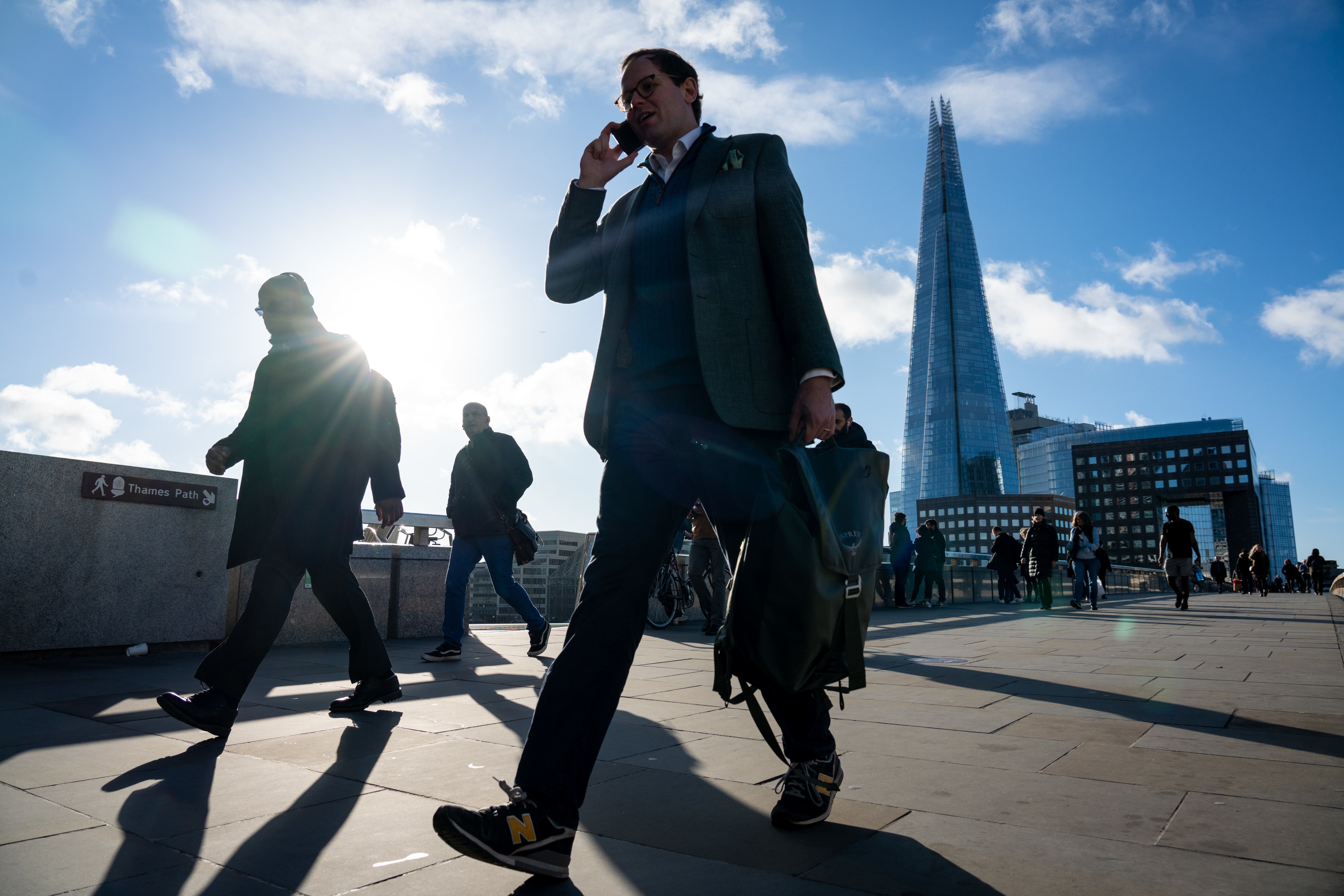UK wages rise at record rate as unemployment jumps unexpectedly
Average regular pay, not including bonuses, was 7.3 per cent higher in the three months to May

Your support helps us to tell the story
From reproductive rights to climate change to Big Tech, The Independent is on the ground when the story is developing. Whether it's investigating the financials of Elon Musk's pro-Trump PAC or producing our latest documentary, 'The A Word', which shines a light on the American women fighting for reproductive rights, we know how important it is to parse out the facts from the messaging.
At such a critical moment in US history, we need reporters on the ground. Your donation allows us to keep sending journalists to speak to both sides of the story.
The Independent is trusted by Americans across the entire political spectrum. And unlike many other quality news outlets, we choose not to lock Americans out of our reporting and analysis with paywalls. We believe quality journalism should be available to everyone, paid for by those who can afford it.
Your support makes all the difference.Wages have increased at a record rate amid fears that inflation could remain stubbornly high and result in further interest rate rises by the Bank of England.
The Office for National Statistics (ONS) revealed that average regular pay, not including bonuses, was 7.3 per cent higher in the three months to May compared with the same period last year.
It was the same as the revised figure for the previous three months and the joint highest since records began in 2001.
It comes as workers have sought pay rises in order to help keep up with the increased cost of living, with annual inflation recorded at 8.7 per cent for May amid higher food prices.
The ONS also revealed on Tuesday that unemployment rose unexpectedly over the quarter.
It said the UK jobless rate jumped to 4 per cent in the three months to May, from 3.8 per cent in the previous quarter.
Economists had predicted a reading of 3.8 per cent for the latest three-month period.
Meanwhile, employment levels also grew as the number of people recorded as economically inactive declined, with the number of those not working due to long-term sickness dipping for the first time since last year.
ONS director of economic statistics Darren Morgan said: “Total employment grew in the latest three months while the number of people actively looking for work also increased, both driven by men rejoining the labour market.
“Pay excluding bonuses has again risen at record levels in cash terms.
“Due to high inflation, however, the real value of weekly earnings are still falling, although now at its slowest rate since the end of 2021.”
The new data also showed that job vacancies fell by 85,000 to 1,034,000 in April to June, against the previous quarter. It was the 12th consecutive drop as hiring by firms comes under continued pressure.
Chancellor Jeremy Hunt said: “Our jobs market is strong, with unemployment low by historical standards.
“But we still have around one million job vacancies, pushing up inflation even further.
“Our labour market reforms – including expanding free childcare next year – will help to build the high-wage, high-growth, low-inflation economy we all want to see.”
Shadow work and pensions secretary Jonathan Ashworth said: “These figures are another dismal reflection of the Tories’ mismanagement of the economy over the last 13 years.
“Britain is the only G7 country with a lower employment rate than before the pandemic, and real wages have fallen yet again – just as more and more families feel the devastating impact of the Tory mortgage bombshell.”

